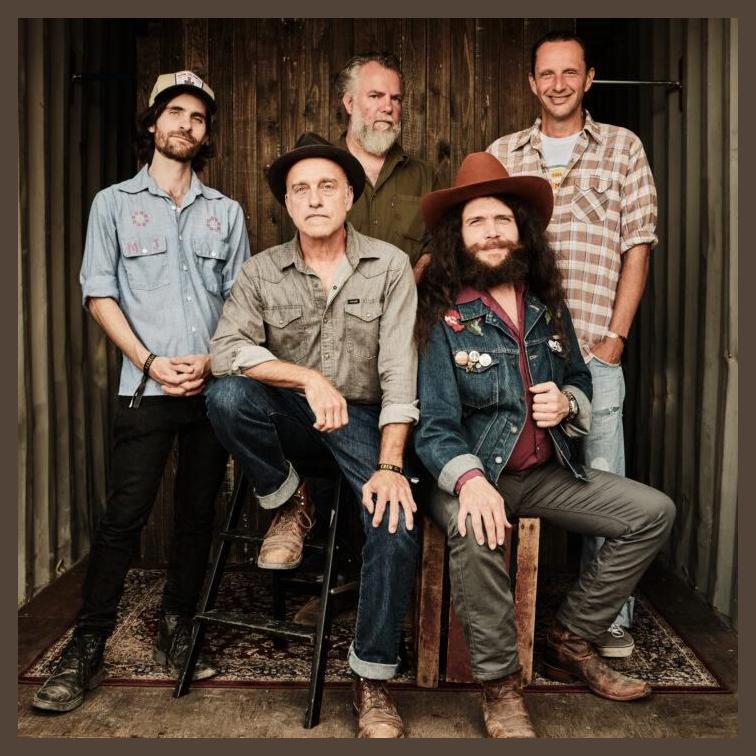 Hackensaw Boys
Hackensaw Boys
Hackensaw Boys: A Journey of Folk, Controversies, and Musical Triumphs
Genesis and Early Challenges
Emerging from the bustling streets of Richmond, Virginia, the Hackensaw Boys first graced the music scene in 1999. Led by the enigmatic David Sickmen, the band's raw and infectious blend of folk, bluegrass, and punk quickly captivated audiences. However, their unconventional approach and off-kilter lyrics raised eyebrows within the traditional bluegrass community.
Controversies and Artistic Expression
The Hackensaw Boys courted controversy with their bold and unapologetic lyrics, which often explored themes of social injustice, poverty, and mental illness. Their song "Jonah," a haunting and unflinching portrayal of mental health struggles, sparked heated debates and led to accusations of being too dark and disturbing.
Discography and Musical Evolution
Despite the controversies, the Hackensaw Boys released a prolific body of work that showcased their musical diversity. Their debut album, "Love & Death & Railway Tracks," introduced their signature blend of folk, bluegrass, and punk. Subsequent albums, such as "Look Out!," "Fire on the Mountain," and "Charlatan," further explored their experimental and eclectic style.
Members and Influences
The core lineup of the Hackensaw Boys comprised David Sickmen (vocals, guitar), Ferd Moyse (fiddle), Justin Moyse (banjo), and John Currie (bass). Over the years, the band has welcomed a rotating cast of talented musicians, including Andy Goessling (dobro) and Matt Keating (mandolin). Their music draws inspiration from traditional bluegrass legends such as Bill Monroe and Doc Watson, as well as punk icons like the Ramones and Dead Kennedys.
Legacy and Impact
The Hackensaw Boys have left an indelible mark on the folk and Americana music landscape. Their boundary-pushing music challenges conventions, sparks conversations, and resonates with audiences from all walks of life. Despite the controversies and obstacles they faced, they remain a testament to the transformative power of artistic expression.
Genesis and Early Challenges
Emerging from the bustling streets of Richmond, Virginia, the Hackensaw Boys first graced the music scene in 1999. Led by the enigmatic David Sickmen, the band's raw and infectious blend of folk, bluegrass, and punk quickly captivated audiences. However, their unconventional approach and off-kilter lyrics raised eyebrows within the traditional bluegrass community.
Controversies and Artistic Expression
The Hackensaw Boys courted controversy with their bold and unapologetic lyrics, which often explored themes of social injustice, poverty, and mental illness. Their song "Jonah," a haunting and unflinching portrayal of mental health struggles, sparked heated debates and led to accusations of being too dark and disturbing.
Discography and Musical Evolution
Despite the controversies, the Hackensaw Boys released a prolific body of work that showcased their musical diversity. Their debut album, "Love & Death & Railway Tracks," introduced their signature blend of folk, bluegrass, and punk. Subsequent albums, such as "Look Out!," "Fire on the Mountain," and "Charlatan," further explored their experimental and eclectic style.
Members and Influences
The core lineup of the Hackensaw Boys comprised David Sickmen (vocals, guitar), Ferd Moyse (fiddle), Justin Moyse (banjo), and John Currie (bass). Over the years, the band has welcomed a rotating cast of talented musicians, including Andy Goessling (dobro) and Matt Keating (mandolin). Their music draws inspiration from traditional bluegrass legends such as Bill Monroe and Doc Watson, as well as punk icons like the Ramones and Dead Kennedys.
Legacy and Impact
The Hackensaw Boys have left an indelible mark on the folk and Americana music landscape. Their boundary-pushing music challenges conventions, sparks conversations, and resonates with audiences from all walks of life. Despite the controversies and obstacles they faced, they remain a testament to the transformative power of artistic expression.